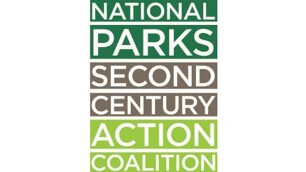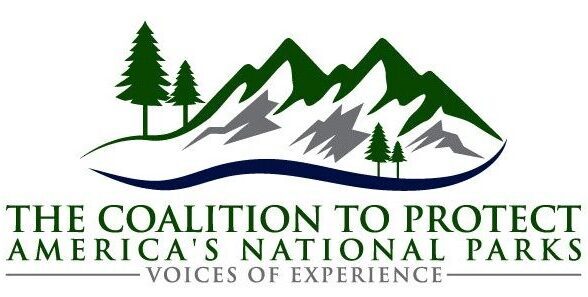
January 11, 2019
Dear Representative,
We, the members of the National Parks Second Century Action Coalition[i], write to ask Representatives to support H.R. 266, the FY19 Interior, Environment and Related Agencies Appropriations bill. Passage of this bill and other individual appropriations bills would reopen portions of the federal government, putting Americans back to work and reopening all our national parks.
Many of our national parks, their visitors and staff are experiencing significant impacts from natural and cultural resource damage to lost revenue from uncollected fees and the loss of visitor spending. Here are just a few of the national impacts:
- At least 16,000 Park Service employees are not working, not including contractors or seasonal staff;
- Resources are being impacted by the waste and litter scattered in parks, by off-road vehicle incursions, and by people parking and camping in sensitive areas;
- Parks without maintenance staff and restroom facilities are posing significant threats to human health from overflowing trash bins and human waste left in open areas and along roads;
- Park Service is losing an estimated $400,000 a day from uncollected fee revenue and other projects that enhance visitor experiences;
- Organizations like American Hiking Society partners with federal land managers through co-operative agreements to complete stewardship volunteer service trips on public lands, including national parks. These stewardship trips are at risk and could result in a loss of a quarter million dollars in in-kind labor to address routine and deferred maintenance on trails on public lands.
- Many Conservation Corps crews and interns have had to suspend operations due to the unique nature of 21st Century Conservation Service Corps /federal land management partnerships. This has a wide range of impacts on high priority public lands recreation, maintenance and fire projects; contributing to a loss of private funding and project match funds; adverse financial impacts to Corpsmembers; national service term and education award impacts; federal hiring authority project hours requirements; project development and planning; and recruitment for current and future field seasons;
- Important research and monitoring projects in national parks have been curtailed, creating data gaps that can never be recovered;
- Visitor information requests and trip planning services and permitting are not being fulfilled.
As significant as these impacts are at the national level, the effect on local gateway communities equally severe. In 2017, an estimated 331 million travelers visited national park sites, spending $18.2 billion in local gateway communities. It is projected that gateway communities could lose up to $20 million a day from the loss of an estimated 425,000 visitors per day to the national parks during the month of January. A few illustrative examples include:
- Macon, Georgia, which the shutdown hit during a peak time, forced the closure of its largest attraction, the Ocmulgee National Monument. In 2017, Macon launched “Lights Extravaganza” which drew an estimated 100,000 visitors to its downtown during the holiday season and increased hotel occupancy by 15% in December. City officials expected a larger turnout in 2018 as Visit Macon had marketed the event for more than six months.
- Cane River National Heritage Area connects rural communities in west central Louisiana. During the busiest month of the year, December, it had to work around the closure of four major attractions: Cane River Creole National Historical Park, the US Army Corps of Engineers Grand Ecore Visitor Center, the Natchitoches National Fish Hatchery/Aquarium, and the Kisatchie National Forest. All of these public land sites depend on the gateway activities of the Natchitoches Christmas Festival Season to achieve visitation goals and increase awareness of their resources. Reaching those visitation goals has a ripple effect on the local rural economies.
While the coalition appreciates the hard work of the appropriations committees, we recognize that H.R. 266 is far from perfect. We all agree that the imperative is to get the national parks reopened and the Department of the Interior’s diverse agencies funded for FY19. We commend the bill’s repayment of lost wages to federal workers, including our national park service rangers.
We urge you to help pass H.R. 266 to reopen all national parks in order to restore and protect our nation’s natural and cultural resources, support gateway communities, and provide park visitors safe and rewarding experiences.
Thank you for considering our views,
American Hiking Society
Atomic Heritage Foundation
Big Bend Conservancy
Coalition to Protect America’s National Parks
The Corps Network
National Parks Conservation Association
National Tour Association
National Trust for Historic Preservation
Scenic America
Southeast Tourism Society
St. Croix River Association
United States Tour Operators Association Voyageurs National Park Association
Western National Parks Association
[i] The National Parks Second Century Action Coalition is made up of organizations supporting conservation, recreation, outdoor industry, travel and tourism and historic preservation that are dedicated to promoting the protection, restoration, and enjoyment of the National Park System for the long-term benefit it offers our nation.
